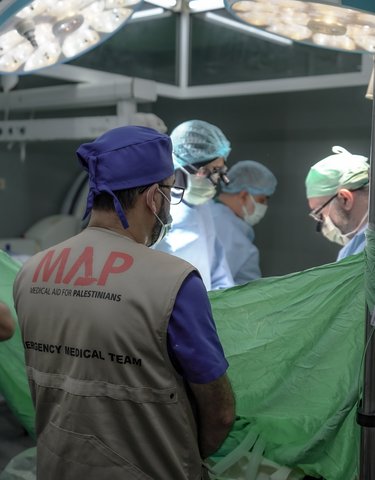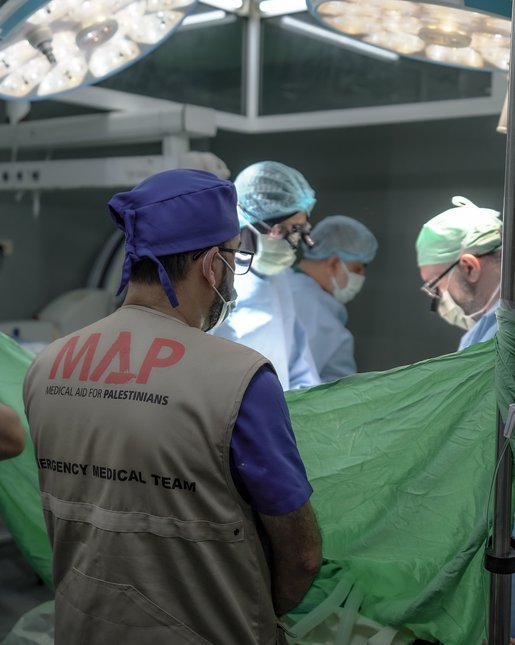Five years on from the Great March of Return wounds are still unhealed
30 March 2023
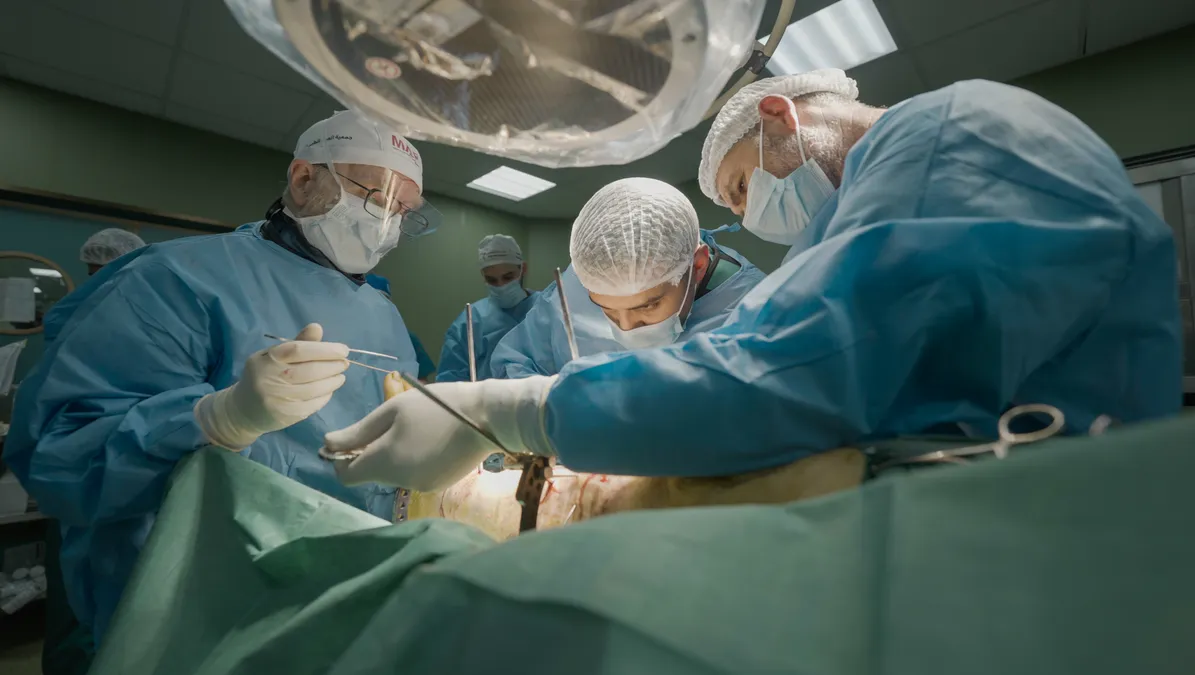
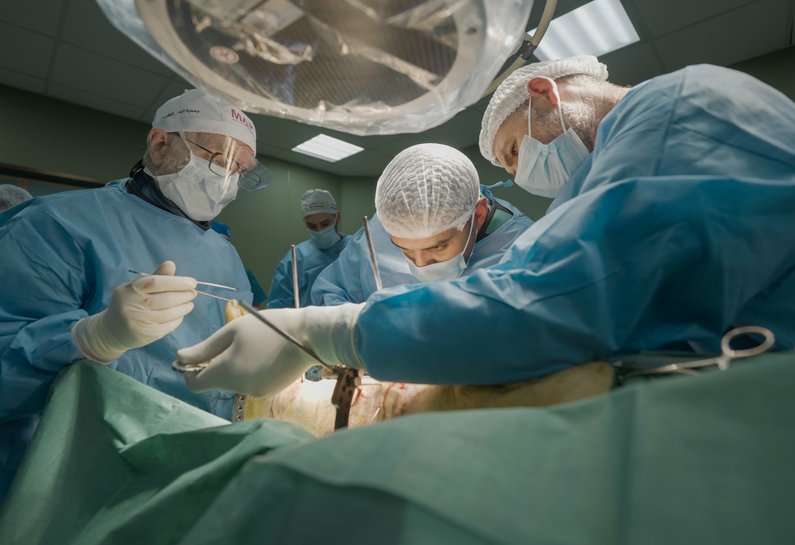
Despite the protests being ‘civilian in nature’, according to the UN, Israeli forces responded with widespread and systematic use of excessive force, including live ammunition, rubber-coated steel bullets and tear gas. 214 Palestinians, including 46 children, were killed, and over 36,100, including nearly 8,800 children, were injured. One in five of those injured, over 8,000, were hit by live ammunition.
Many of those shot with live ammunition suffered complex limb injuries – particularly to the legs – that have required expensive and painful long-term reconstruction treatment. Ahmad, 26, is still being treated for a gunshot wound he sustained on 14 May 2018, which was the deadliest days of the demonstrations. During this one day, 60 people were killed and 2,771 injured, including 1,359 hospitalised with gunshot wounds.
Since being shot, Ahmad has undergone 20 surgeries, including knee joint fusion. He developed a chronic infection in his knee bone over the last three years and still requires medical care as it has been resistant to treatment. Going through knee fusion has significantly limited Ahmad’s mobility and fully restricted the movement of his joint.
In January 2023, Ahmad was admitted to the limb reconstruction unit at the Nasser Hospital in the south of Gaza, supported by Medical Aid for Palestinians (MAP) and our partner IDEALS, for treatment. For over 20 days, he has been on intravenous (IV) empirical antibiotics waiting for the results of his culture sample and a decision about whether he can be discharged.
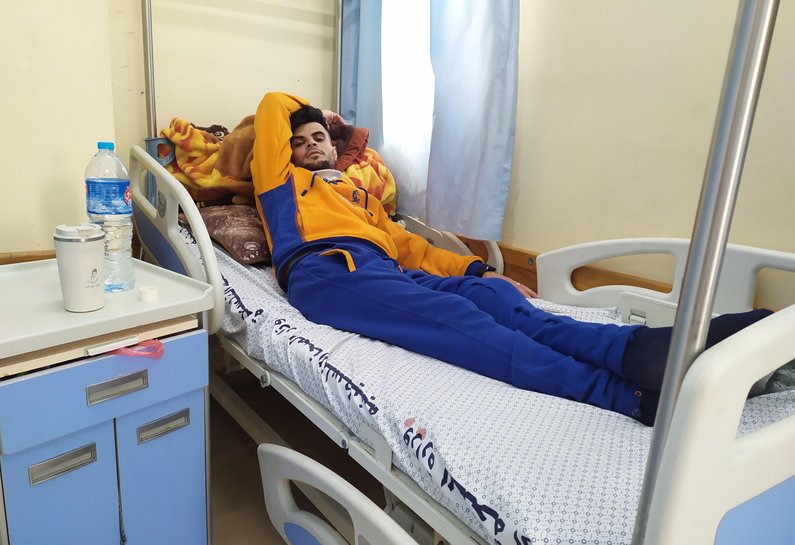
Gaza’s already overstretched health system and the lack of essential medicines and lab reagents has posed a significant challenge to Ahmad’s treatment and that of the other patients at the limb reconstruction unit. In February 2023, the Palestinian Ministry of Health reported that 42% of essential medicines at Gaza’s Central Drug Store were at zero-stock, meaning they have less than one month’s supply left.
There are particular shortages in antibiotics, antiseptic solutions and lab reagents. These are all essential to prevent and eradicate bone and soft tissue infections that patients going through limb reconstruction treatment are subject to developing, given the nature and complexity of injuries caused by live ammunition.
Jamal Zoroub, Head of the Nursing Staff at Nasser Hospital’s limb reconstruction unit, explained the consequences of this: “Our lack of antibiotics makes us go with the available drugs in stock no matter how responsive the bone cultures [an examination of bone tissue] indicated they are. As a result, healing wounds gets complicated and takes longer than expected, leading to longer hospitalisation, busy bed capacity and an increased workload for staff.”
“Furthermore, we have faced challenges with a lack of antiseptics used to prepare the surgical site before an operation, which increases the risk of surgical site infections after an operation. Also, we currently have a low level of infection marker lab reagents which further complicates the infection follow up process,” he said.
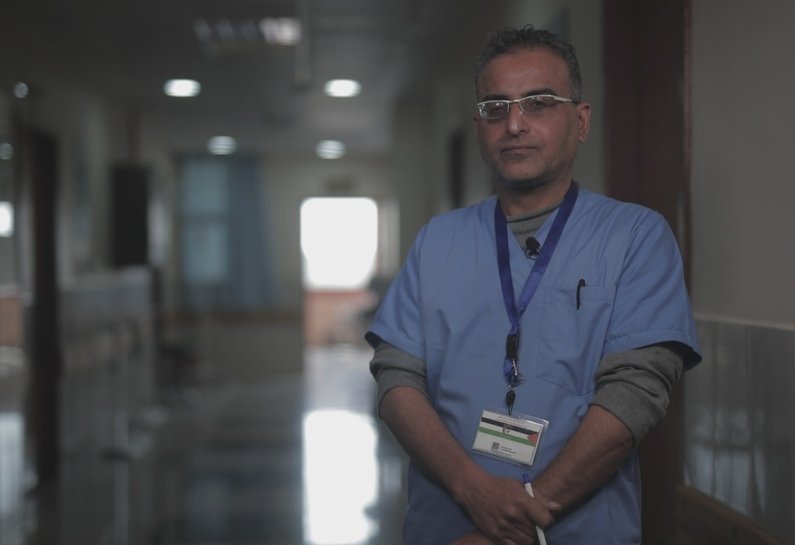
Due to the challenges facing limb reconstruction services in Gaza, sometimes patients must be referred for treatment to hospitals in the occupied West Bank, including East Jerusalem, or abroad. But to travel, patients must apply to the Israeli authorities for a permit through a procedure characterised by frequent, arbitrary rejections and excessive delay. Ahmad has recently received a referral and applied for his permit, but is still waiting for it to be approved.
The legacy of the gunshot wound Ahmad sustained by Israeli forces five years ago has had an immeasurable impact on his life. Since his injury, he has had to stop his work as a taxi driver, which was his only form of income to support his family, including his parents and eight siblings.
The MAP-supported limb reconstruction unit in Gaza has played a significant role in Ahmad’s road to recovery. But with so many more patients requiring treatment and suffering from chronic bone infections, the need for essential medicines and supplies is as important as ever.
Please consider donating to MAP to support limb reconstructions services and other emergency and complex hospital care work in Gaza.
